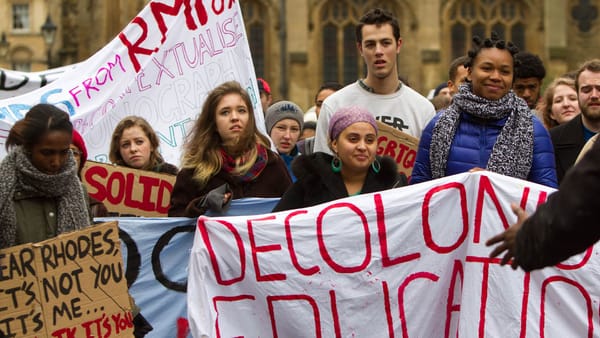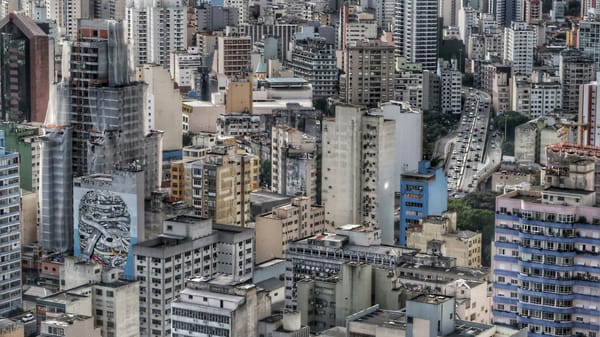
Economics
In the future, there is enough work and resources for everyone to live well.
According to standard economics, free markets create wealth and abundance. Markets allocate work and resources in competitive and dynamic ways, but will reach a natural equilibrium. Where they have flaws (externalities, market failures, monopolies, etc.) this can be managed with legislation, regulation and taxation.
That does not reflect the economic realities most people experience now. Too many are stuck in poverty, eager to work, but unable to find jobs. Businesses act in harmful and exploitative ways. Nations compete for growth in an endless rat race, threatening the environment we all rely on.
For a calmer future, we need to imagine a world with enough for everybody to live sustainably – and to live well. We must recognise the false promises of infinite economic growth, technological disruption, and cut-throat global competition, to see what actually blocks a more inclusive, realistic and stable future.
The economics of permanence implies a profound reorientation of science and technology, which have to ... incorporate wisdom into their very structure...
E. F. Schumacher
Traditionally, economics was based on assumptions of scarcity, and carefully balanced trade-offs, but our world has drastically changed. Modern industry combines mass production with scientific progress, global economies of scale, and vast energy inputs. This incredible productivity leaves markets drowning in abundance – they break down in ways economics never anticipated.
A world of abundance may seem counter-intuitive, given the obvious persistence of poverty. Industrial abundance is unevenly distributed. Vast inequality means a wealthy minority use far more resources than the majority of humanity. Our economic and environmental footprints are very different. (The connections between inequality and exploitation are more complex than default assumptions of scarcity suggest.)
What we actually face is an unprecedented level of industrial abundance, which should drive prices lower for everyone. However, a technological failure within infrastructure and housing markets prevents many from enjoying this, and keeps the cost of living, and the costs of employing people, high. At the same time, mainstream culture has normalised the existential competition this results in.
As markets drown in abundance, strange things begin to happen, which together we can call desperate economics:
Because of industrial productivity, oversupply drives once valuable products to become worthless mass produced commodities. These leave profit margins too low to sustain healthy markets. Producers have to instead seek ways to climb the value chain, discontinue things customers still want, or rely on product churn to remain profitable. These pressures multiply resource use (and waste) far beyond our actual needs.
Desperate companies invent ways to capture markets, creating monopolies to trap customers, and excluding or absorbing possible competitors. This creates a kind of parasitic capitalism, which exploits workers, reduces overall choice, drives up prices, and damages customer trust.
Increased efficiency has long created problems for labour markets. Destructive productivity 'improvements' in agriculture forced people off the land during the enclosures and clearances. New machinery and mills for textiles led to the Luddite rebellions, and impoverished distant Indian weavers and spinners.
In the 1960s, the automobile industry accounted for a sixth of American jobs. Wages can't fall like other inputs have, so modern factories are automated to employ as few people as possible. Inadequate employment is a historical and global problem, now impacting even 'developed' economies, and crowding people into overheating megacities.
As companies chase dwindling profits, economies of scale become a key factor. Corrupting corporations dominate, growing first through internal efficiencies, then by lobbying the state for preferential treatment: subsidies, tax breaks, protected markets and reduced regulations – cutting 'red tape'.
Shrinking taxation revenues, poor employment markets, and burgeoning debts all shrink policy options available to nations, leading to debilitated government. Politicians desperately chase 'growth' at any cost, lack funds for obvious public goods, and reduce rights safeguarding citizens and the environment,
Chasing productivity alone exacerbates these tensions, but many people also still need healthy economic growth. We need to reduce the deeper pressures causing desperate economics to create a calmer future.
Industrial productivity should make everything more affordable, and reduce the costs of living for everyone. There is, however, one critical exception. Housing in urban centres is the key bottleneck. High living costs reduce the viability of many essential jobs, and drives up the cost of services.
In many cities, housing is now a lucrative asset to invest in, further inflating these costs, and entrenching inequalities. Less obviously, housing shortages fuel artificially high returns on investment. This increases pressures on companies across all economic sectors to be more exploitative, as they have to compete for the same funds, and satisfy the same investors, crowding out genuinely sustainable options.
To resolve desperate capitalism, we need infrastructure paradigms to relieve overheating megacities, by upgrading the congealed transport which underpins them.
Our governments have to stop chasing international competitiveness, growth, productivity at all costs. Countries must become communities, rather than cut-throat companies.
Culturally, must stop normalising existential competition. We all deserve to live meaningful lives, and experience comfort and abundance, unthreatened by fickle market forces. At a personal level, we will need to find meaning in a wider range of things than status and material success.


